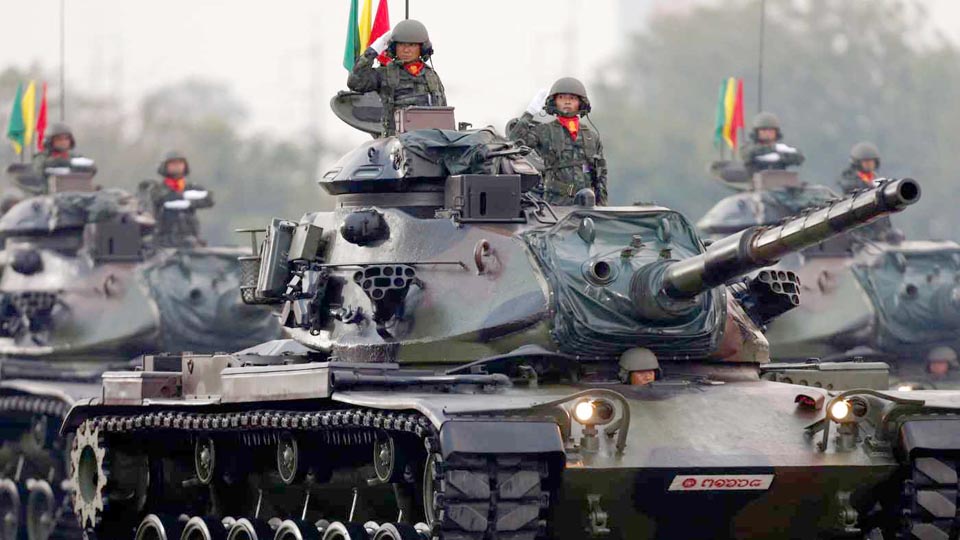
Amid all the speculation about the possibility of a palace coup in Moscow, Thailand’s colorful history of coups can shed a light. There have been 18 attempted putsches in Bangkok in the last hundred years or so, with two thirds having been successful in toppling the powers that be.
The golden rule is that the military must be united. In the last two Thai coups of 2006 and 2014, peaceful for the most part, top army and police personnel immediately appeared as a group on TV to make the announcement. In 2014, a putsch for the first time ever did not require any rumbling tanks in the streets. On the other hand, when the Thai military was divided, as in several attempts in the 1980s, the take-over failed.
As Volodymyr Ishchenko, a coup historian, puts it, “Putin, an ex-secret service officer, has made sure over 20 years that the various security forces are not controlled by the same groups. The National Guard is in charge of domestic security, but there is also the Federal Security Service whilst intelligence matters are in the hands of the GRU. A security Federal Protection Agency provides Putin’s personal security detail.” No unified command structure there.
Another key to a successful coup in Thailand has been instantaneous action. It all happens very quickly and people wake up to find it is already too late to make any difference. This occurred in 2014 when there had been wide predictions that a military take-over would be met with resistance in the streets. That never happened: potential leaders were quickly taken into custody, or fled, or came to the conclusion that resistance was pointless to the outcome.
Such prompt action would be well-nigh impossible in Russia, a much larger country with very little experience of coups. The last serious attempt occurred in 1991 when army generals tried to stop Mikhail Gorbachev dismantling the Soviet Union. They kind-of arrested him at his Black Sea holiday resort but failed to keep him off the airwaves and hesitated in all sorts of crucial ways. They failed and an attempt in 1993 to arrest Boris Yeltsin was another fiasco.
Ishchenko rules out a Russian coup or revolution in the immediate future. “Putin has marginalized opposition and the Ukrainian war has further divided them. The 200,000 Russians who have fled the country in the past month has made mass revolt even more unlikely.” He adds that Putin’s terror tactics are also important: everyone knows what happens to traitors in Russia! The Russian population is still firmly under control.
Another armed forces expert Pavel Luzin said, “But the situation could change if the war escalates. The bigwigs in the security services, known collectively as Siloviki, may be afraid of catching the blame if the war goes horribly wrong.” He added there were already unconfirmed reports of sudden heart attacks or house arrests of generals whose predictions of a quick victory have been proved worthless. The super-rich oligarchs, who control Russian industry and own mansions and football clubs abroad, may resent the fact that they can’t enjoy a luxury lifestyle in the Mediterranean on their billion-dollar yachts.
In other words, Putin’s future actions rather than his previous ones will likely dictate the likelihood of a palace coup. The most recent indications are that he may revise his military plans and concentrate on “liberating” the Russian-speaking areas of Ukraine: the Crimea already seized in 2014 and the self-declared republics of Donetsk and Luhansk. If true, such a retreat from his more grandiose war aims may indicate Putin is indeed worried about his security.
 |
 |
 |





